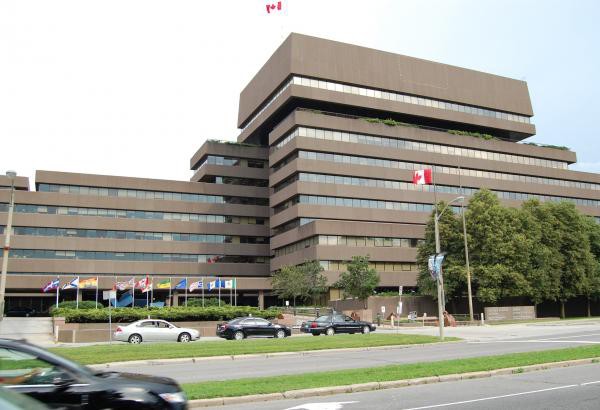December 19, 2017
Pearson's Foreign Affairs legacy: then and now – Cohen
By Andrew Cohen

Lester Pearson is back in favour but the international role he fashioned for Canada is lagging
ANDREW COHEN
Special to The Globe and Mail Published December 11, 2017
(Published with the author’s permission)
Andrew Cohen is author of Extraordinary Canadians: Lester B. Pearson
After a long, chilly exile, Lester Bowles “Mike” Pearson is in favour in Ottawa again. It is safe in government circles to say his name – unspoken among Conservatives for a decade – and to celebrate his legacy at home and abroad.
Stephen Harper, who loathed Liberals, placed Mr. Pearson under historical house arrest. Mr. Harper disdained the United Nations and lost Canada’s traditional seat on the Security Council. He rejected peacekeeping, ignored international non-governmental organizations and cut foreign aid. It seemed personal.
John Baird, as Foreign Minister, nursed a grudge against Mr. Pearson inherited from his boyhood hero, John G. Diefenbaker. Mr. Baird removed “Lester B. Pearson Building” from the address on his business card. He ordered a tribute to Mr. Pearson’s Nobel Prize taken down from his department’s website. And “with much offence intended,” as historian John English notes, Mr. Baird named the former City Hall next to the Foreign ministry after Mr. Diefenbaker. Take that, Mike! The cleansing didn’t stop there. Denied federal funding, the Pearson Peacekeeping Centre was forced to close. The 60th anniversary of the founding of the North Atlantic Treaty Organization – which Mr. Pearson called his greatest achievement – was ignored. Worse, Parks Canada quietly dismantled the replica of Mr. Pearson’s study in Laurier House, the national historic site in Ottawa. The family, which had donated the artifacts in 1974, was not told.
Now, the Liberals are in power and Mr. Pearson has returned from Elba. Sixty years after he won the Nobel Peace Prize on December 11, 1957, the government hails him as the country’s greatest diplomat and a transformative prime minister.
To the world, it declares: “Canada is back.” More likely, Mr. Pearson is back. Canada is not.
Mr. Pearson’s champion is Chrystia Freeland, the Foreign Affairs Minister, who embraced his values in a signature address to Parliament in June. To her, Mr. Pearson was “the great Canadian, perhaps best known for advancing the cause of humanitarian internationalism.”
She argues Canada is “an essential nation.” It is a conceit that Mr. Pearson would admire, applauding the ambition, and challenge – questioning the commitment.
Almost 50 years since he left office, the need for Mr. Pearson’s statecraft is real. As leading democracies are in retreat or repose – the United States withdrawing from the world, Britain withdrawing from Europe, France and Germany looking inward – Canada is well positioned to seize the day.
Instead, we praise the man, but ignore his method, heralding Mr. Pearson more than Pearsonianism. We oppose global warming and accept Syrian refugees, yes, but shrink from innovative multilateralism, robust peacekeeping and generous foreign assistance.
Were Mr. Pearson here today, he would loosen his bow tie and sigh. He was about seeking opportunity. An adept stick-handler (they called him “Herr Zig-Zag” when he played hockey in Switzerland), he had an uncanny sense of where the play was going. He foresaw the shift from the old world to the new, the rise of developing countries, the value of multilateral forums. He shaped Canada’s role as broker, mediator and at times, moderator of American power.
Prime Minister Justin Trudeau’s understandable top priority is preserving the North American free-trade agreement and managing U.S. President Donald Trump, which he is doing adroitly. To the world, he’s the face of a progressive, compassionate country. Branding, looks, socks and selfies help.
Beyond celebrity, it’s thin. As observer Robert Greenhill laments, Canada is less back than “far back.” We talk about a “feminist” development policy, but it’s largely a fig leaf. At 0.26 per cent of GDP, our developmental assistance is collapsing. That would particularly disappoint Mr. Pearson, who inspired the creation of a central aid agency and led a World Bank commission urging wealthy countries to commit 0.7 per cent to foreign aid.
The Liberals promise to return to peacekeeping, Mr. Pearson’s creative response to the Suez Crisis in 1956. He made Canada the world’s leading peacekeeper (though NATO was always far bigger). After pledging boots in hot spots, today’s Liberals offer something less; our consolation is it’s better than Mr. Harper’s nothing at all.
The Liberals want to regain a seat on the Security Council in 2020 and are mounting a serious campaign. But Mr. Trudeau missed an opportunity in October to make a broad case, instead apologizing to the General Assembly for our treatment of Indigenous Canada.
Curiously, he did not talk about UN reform, poverty, nuclear proliferation, Iran and North Korea. In the end, who are we?
Mr. Pearson knew, which is why we revere him today. A new collection of essays this autumn, Mike’s World, examines his internationalism. His Peace Prize medal is on display, finally, in the Canadian Museum of History. And, last summer, his study was rescued from oblivion and partially remounted in a charming exhibition in Kagawong, Ont., on Manitoulin Island, Mr. Pearson’s old riding.
In 2017, Mr. Pearson lives. He calls Canada to the world, again, with eloquence, authority and urgency.



